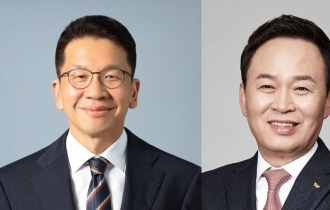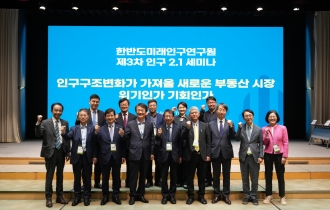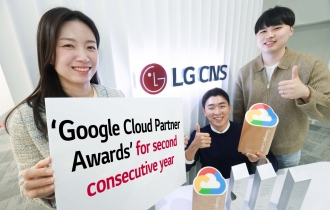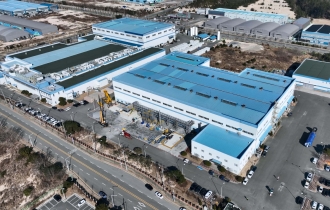[INTERVIEW] Timing is secret to startup success: Refactor Capital founder
[THE INVESTOR] Why do only few startups rise and most others fail?
It is one of the most complicated questions in the venture industry. Especially since even the most promising startups -- armed with a smart founder, cutting-edge technology and financial backing -- have gone under.
For David Lee, Refactor Capital founder and managing partner, it’s all about timing –- understanding when a company comes to market.
“I think timing is one of the biggest factors, and it is the most important question I ask startups. Why now? What has changed to make this product valuable or possible?” Lee told The Investor in an interview last week during a SparkLabs Demoday in Seoul. He serves as a mentor for the Seoul-based startup accelerator.
Refactor Capital is a three-year-old early-stage VC based in California. Its US$50 million fund invests in biology, health care, cryptocurrencies and food, focusing on what Lee calls “hard but not impossible.” So far, the VC has invested in 29 startups, including bio startups Solugen, Cambridge Cancer Genomics and Headspace, to name a few.
Before that Lee was with SV Angel for a while, and during that time, the Korean-American invested in some of the most successful startups that have become household names, including Twitter, Airbnb, Snapchat, Pinterest and Dropbox.

David Lee, founder and managing partner of Refactor Capital. SparkLabs
“Great founders and great leaders are able to look at the progress of technology, match it with the company’s strategy and make decisions based on when those two lines across,” said Lee, adding Apple co-founder Steve Jobs possessed a great sense of timing. “With iPhone, people always asked when Apple will launch a phone. Jobs waited and waited until the glass was perfect and then when it did, he launched it.”
That’s why Lee, as an angel and early-stage investor, bets on founders, when he makes a call.
“I spend time with the founders and try to evaluate whether that person is special,” he said. “And by special, I mean drive, talent, conviction, energy, personality and all of those factors. The hard part is, sometimes they have all of that and they still fail.”
But he believes some of the best founders have the capability to pivot, and go on despite failures.
“Founders will always hit adversity in very tough times. And it’s not just about getting through it but it’s about getting stronger, the more you go through it.”
As an investor, Lee views his role as an investor very similar to a parent.
“You can’t be their best friend all the time,” said Lee who is a father to two girls. “In the first two years of a company, it’s my belief that you cannot over-coach them or prepare too hard to a certain level. Because they are too early and trying to find the way.”
“Now, after two years, hopefully they are at that point, ready to build the company. Then you need to have a different relationship. Perhaps, sit on the board of directors, challenge them.”
And like parenting, startups need different kinds of coaching at different time in their lives. “If you are a founder, you should pick your advisor and investor according to where you are as a company. Your advisors and investors in the early stage shouldn’t be the same one in the middle stage or the later stage.”
Lee also stressed that VCs don’t always have the upper hand any longer.
“Entrepreneurs have more choices than ever, whereas 20 years ago, they didn’t have many choices and that’s why investors had so much power. The pendulum has swung, not just for startups but in every industry.”
Patience is another essential element for success, according to Lee, referring to his favorite quote from Michelangelo: “genius is an eternal patience.”
But even after the long wait, not everyone will make it.
“You expect it,” he said. “Five to 10 percent of company-invested dollars drives all of the values, it’s a hit-driven business. So that means 90-95 percent don’t matter. You have to have the willingness to know that from the probability standpoint that some companies aren’t going to make it. But the ones that do, they make it beyond your imagination. That’s our nature of business.”
By Ahn Sung-mi (sahn@heraldcorp.com)
EDITOR'S PICKS
- [Exclusive] Korean military set to ban iPhones over 'security' concerns
- SK CEOs vow to bolster corporate value-up drive
- Aging population to drive down Korea's housing prices from 2040: experts
- LG CNS wins Google Cloud partner awards for second year
- CJ's processed rice sales soar in North America
- [Herald Interview] Bridging Korea, Philippines for better future
- Samsung SDI showcases latest battery tech at EVS37
- Posco completes new silicon anode material plant






![[Exclusive] Korean military set to ban iPhones over 'security' concerns](http://res.heraldm.com/phpwas/restmb_idxmake.php?idx=141&simg=/content/image/2024/04/23/20240423050599_0.jpg)




![[Herald Interview] Bridging Korea, Philippines for better future](http://res.heraldm.com/phpwas/restmb_idxmake.php?idx=141&simg=/content/image/2024/04/23/20240423050735_0.jpg)



